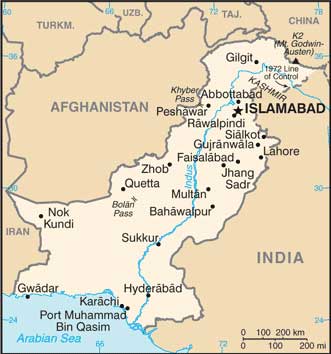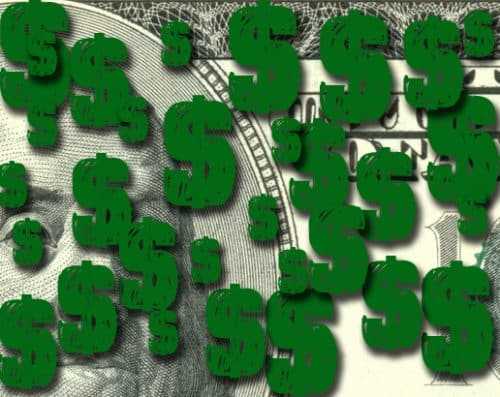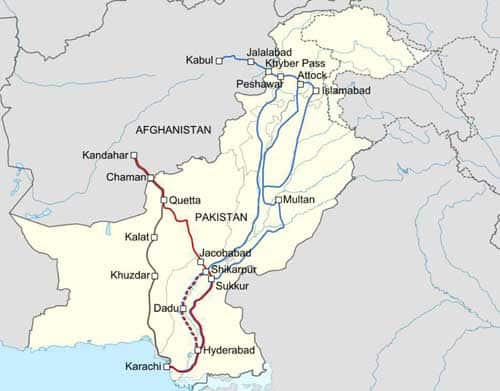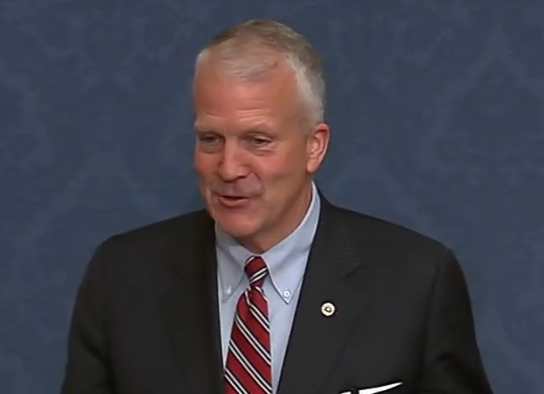“Poor countries are developing rich countries, not the other way around.”
Capitalist powers have drained $152 trillion from the Global South since 1960, according to new peer-reviewed research quantifying the reproduction of inequality on the world scale.
In an Al Jazeera essay written Thursday, three social scientists—Jason Hickel, an economic anthropologist at the University of London; Dylan Sullivan, a graduate student in political economy at the University of Sydney; and Huzaifa Zoomkawala, an independent scholar based in Pakistan—explained how they arrived at the $152 trillion figure, a finding they first documented in a recent paper on “plunder in the post-colonial era” published in the journal New Political Economy.
“Democratize the institutions of global economic governance, so that poor countries have a fairer say in setting the terms of trade and finance.”
—Hickel, Sullivan, and Zoomkawala
According to the trio, the U.S., Canada, Australia, New Zealand, Israel, Japan, South Korea, and the rich economies of Europe appropriate $2.2 trillion worth of resources and labor—embodied in raw materials as well as high-tech commodities like smartphones, laptops, and cars that are increasingly manufactured abroad—per year from developing countries in Africa, Asia, and Latin America.
“That amount of money would be enough to end extreme poverty, globally, 15 times over,” wrote Hickel, Sullivan, and Zoomkawala. “Over the whole period from 1960 to today, the drain totaled $62 trillion in real terms. If this value had been retained by the South and contributed to Southern growth, tracking with the South’s growth rates over this period, it would be worth $152 trillion today.”
“Imperial powers finally withdrew most of their flags and armies from the South in the mid-20th century,” the scholars noted, so what explains the persistence of these patterns of exploitation and extraction since then?
“Over the following decades, economists and historians associated with ‘dependency theory’ argued that the underlying patterns of colonial appropriation remained in place and continued to define the global economy,” wrote Hickel, Sullivan, and Zoomkawala. “Imperialism never ended, they argued—it just changed form. They were right.”
The authors pointed to other recent research demonstrating how global economic inequality is reproduced through unequal exchange. As the net importers of materials, energy, land, and labor embodied in the international flow of commodities, high-income nations gain a trade surplus, while lower-income nations face trade deficits.
As Hickel, Sullivan, and Zoomkawala explained:
This flow of net appropriation occurs because prices are systematically lower in the South than in the North. For instance, wages paid to Southern workers are on average one-fifth the level of Northern wages. This means that for every unit of embodied labor and resources that the South imports from the North, they have to export many more units to pay for it.
Economists Samir Amin and Arghiri Emmanuel described this as a ‘hidden transfer of value’ from the South, which sustains high levels of income and consumption in the North. The drain takes place subtly and almost invisibly, without the overt violence of colonial occupation and therefore without provoking protest and moral outrage.
The trio found that “the drain increased dramatically during the 1980s and 1990s, as neoliberal structural adjustment programs were imposed across the Global South.”
According to the researchers, the appropriation of wealth from impoverished nations has become so significant that, for the past couple of decades, it has “outstripped the rate of economic growth” in the Global North.
In the Global South, meanwhile, “the losses outstrip foreign aid transfers by a wide margin. For every dollar of aid the South receives, they lose $14 in drain through unequal exchange alone, not counting other kinds of losses like illicit financial outflows and profit repatriation,” the authors noted.
“The discourse of aid obscures a darker reality of plunder,” wrote Hickel, Sullivan, and Zoomkawala. “Poor countries are developing rich countries, not the other way around.”
As the researchers explained:
Rich countries have a monopoly on decision-making in the World Bank and IMF, they hold most of the bargaining power in the World Trade Organization, they use their power as creditors to dictate economic policy in debtor nations, and they control 97% of the world’s patents. Northern states and corporations leverage this power to cheapen the prices of labor and resources in the Global South, which allows them to achieve a net appropriation through trade.
During the 1980s and 1990s, IMF structural adjustment programs cut public sector wages and employment, while rolling back labor rights and other protective regulations, all of which cheapened labor and resources. Today, poor countries are structurally dependent on foreign investment and have no choice but to compete with one another to offer cheap labor and resources in order to please the barons of international finance. This ensures a steady flow of disposable gadgets and fast fashion to affluent Northern consumers, but at extraordinary cost to human lives and ecosystems in the South.
There are potential solutions, the social scientists noted.
One way to fix this problem would be to “democratize the institutions of global economic governance, so that poor countries have a fairer say in setting the terms of trade and finance,” wrote Hickel, Sullivan, and Zoomkawla.
“Another step would be to ensure that poor countries have the right to use tariffs, subsidies, and other industrial policies to build sovereign economic capacity,” they continued. “We could also take steps toward a global living wage system and an international framework for environmental regulations, which would put a floor on labor and resource prices.”
“All of this would enable the South to capture a fairer share of income from international trade and free its countries to mobilize their resources around ending poverty and meeting human needs,” the scholars added. “But achieving these goals will not be easy; it will require an organized front among social movements toward a fairer world, against those who profit so prodigiously from the status quo.”
Common Dream’s work is licensed under a Creative Commons Attribution-Share Alike 3.0 License. Feel free to republish and share widely.
[content id=”79272″]








